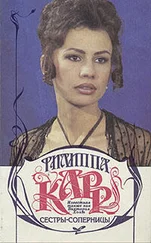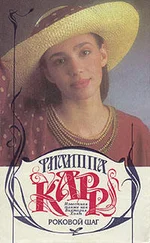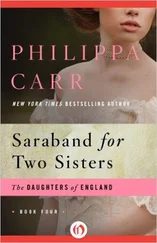“But it is so easy to lose the opportunity to gain that happiness. What if I had lost you?”
There was a sudden shadow between them and I knew instinctively that it was the return of Senara which had reminded them that their happiness might not be secure. One of the gentlemen from London said, “It would be well for the country if the King were less under the influence of his wife. It was the greatest mistake to deal with William Prynne as they did.”
“What happened to William Prynne?” asked Bersaba.
“I forget that remote in the country as you are you miss these things,” replied the gentleman. “Prynne wrote a book against stage plays.”
“Why should he be against such plays?” demanded my mother. “What harm do they do? »
“It was Prynne’s opinion that plays are unlawful because they engender immorality and have been condemned by the Scriptures.”
“But is this so?” asked my mother.
“Prynne produced evidence to prove his case.”
“He is a killjoy,” said my mother. “Miserable himself and wanting everyone else to be the same!”
“That may be,” put in my father, “but every man should have the privilege of stating his views.”
“That is what many think,” put in our guest. “A man may be wrong or right but he must be given leave to air his opinions. Those who don’t agree snap their fingers at him; those who do, applaud. There are certain to be those who are ready to take sides.”
“On what grounds was he sent to the Star Chamber?” asked my mother.
“This is where the King is foolish in his fondness for the Queen,” was the answer. “Prynne attacked the women who appeared on the stage for in his opinion although stage plays in themselves are wicked, the greatest sin of all is for a woman to appear on the stage. Now the Queen loves the play-to witness it and to take part in it-and she and her ladies have recently performed William Montague’s Shepherd’s Paradise, so the attack appears to be on her personally, and on the King too for that matter, for he took great pleasure in watching and applauding the play. And for this Prynne is sent to prison but first set in the pillory and deprived of his ears. »
“His ears!” cried my mother, deeply shocked.
“Ah, madam,” said our guest, “you live in this peaceful spot. Pray God it may always remain so. But there are changes creeping over our country and they are such that the people will not endure.”
I was trying to imagine what a man looked like without his ears and I felt a sudden pain and fear such as I had never known before.
When I rode out I noticed that the people of the countryside seemed thoughtful. It was as though a cold wind had started to blow across the country from Whitehall, so steadily, so relentlessly, that we were even feeling it at Trystan Priory. We had been home for two weeks when my father was called to Plymouth to discuss the next voyage. My mother begged to go with him, leaving our brother Fennimore in charge of the household.
“We shall not be away long,” my mother assured us and when they rode off together I thought she looked like a bride setting out on her first journey with her new husband. The house seemed different without her. We were accustomed to my father’s absences, so that did not affect us so much, but the house without her seemed somehow bereft After we had bade them farewell in the courtyard, Bersaba and I climbed to the turrets and watched them from there until they had disappeared from sight. “When I am married I shall be just like our mother,” I told Bersaba.
“You will not,” answered my sister, “because you are not like our mother. »
“I mean I shall have a husband who thinks I am as young and beautiful after thirty years of marriage as I was on the day he first saw me.”
“You are not going to marry a blind man?”
“You know what I mean. Father thinks that of our mother.”
“There are not many like them.”
Sadly I agreed with her.
“Mind you, it would be dull if they were. I want my marriage to be different from that. Theirs is hardly exciting.”
“I don’t think anyone could ever have a more exciting moment than our mother when she hears his ship is sighted.”
“It would greatly depend on what excitement meant to you,” Bersaba pointed out “Oh, you can never accept things as they are. You always have to probe and dig about and spoil them.”
“I like to know the truth,” observed my sister. “I wonder what’s happening at Castle Paling?”
“It’s odd that we haven’t heard.”
“Do you think they will be asked here?”
“Not until Father goes. He clearly didn’t like Senara. She tried to stop his marrying our mother. She was jealous. She didn’t want anything to come between her and our mother. She loved her so.”
“I’ll suggest that she wanted to be the one to marry first.»
“It must have been exciting then. I wish we could read our mother’s journal. It will be all about Senara and her mother and grandfather when he was young. Have you started writing, Bersaba?”
“No,” said Bersaba shortly.
“Are you going to?”
“When I’ve something that’s exciting enough to put down.”
‘Well, don’t you reckon Senara’s return with Carlotta is?”
“It remains to be seen.” She hesitated. Then she said, “Til tell you something. I swear someone from Paling will be over soon. »
“Who’s coming over from Paling Castle then?” She smiled secretly. “Bastian perhaps,” she said.
It was not Bastian who came. It was Senara and her daughter. I wondered if they knew that my father was absent Senara cried, “So your mother is not here-“ We told her she had gone with our father to Plymouth.
“Who is in charge?” asked Senara.
“My brother Fennimore,” I answered. “And Bersaba and I are the hostesses. »
“It’s nice of you to welcome us,” said Carlotta with a sly smile, reminding us that we had done nothing of the sort.
Bersaba told them that Fennimore was out on the estate and we hastily ordered the grooms to take the horses while we brought them into the hall. “It’s a lovely old place,” said Senara. “I always thought so. The Castle k so much grimmer.”
“But grander,” added Carlotta.
“Our mother will be so sorry not to be here,” said Bersaba.
I could not imagine my mother’s being in the least sorry while she was with my father. In fact I thought she would be rather pleased not to be here since he would not want these visitors.
“We’ll have a room made ready,” I said and went away to give orders. When I came back Bersaba was taking the visitors into the intimate parlor and one of the maids had brought the wine and cakes with which we always refreshed travelers on their arrival.
“I was surprised,” Senara was saying, “that your mother did not insist on our coming before.”
“It was because our father was home,” Bersaba was explaining. “When he comes they have so much to talk of because he has been away so long. They just have to be together. It has always been like that.”
“Your mother fell in love with him when she was nothing but a girl ... younger than you are,” said Senara.
“And she stayed in love with him ever since,” I said defiantly as though there was need to defend her.
“We were not all destined to find such happiness in married life, alas,” commented Senara. She smiled at Carlotta and went on: “Let us tell the twins your news. I suppose I should be right to wait until your mother returns. She should be the first to know. But I can see you are all agog with curiosity.”
‘What news is it?” asked Bersaba.
“Carlotta has already had a proposal of marriage.”
Читать дальше







